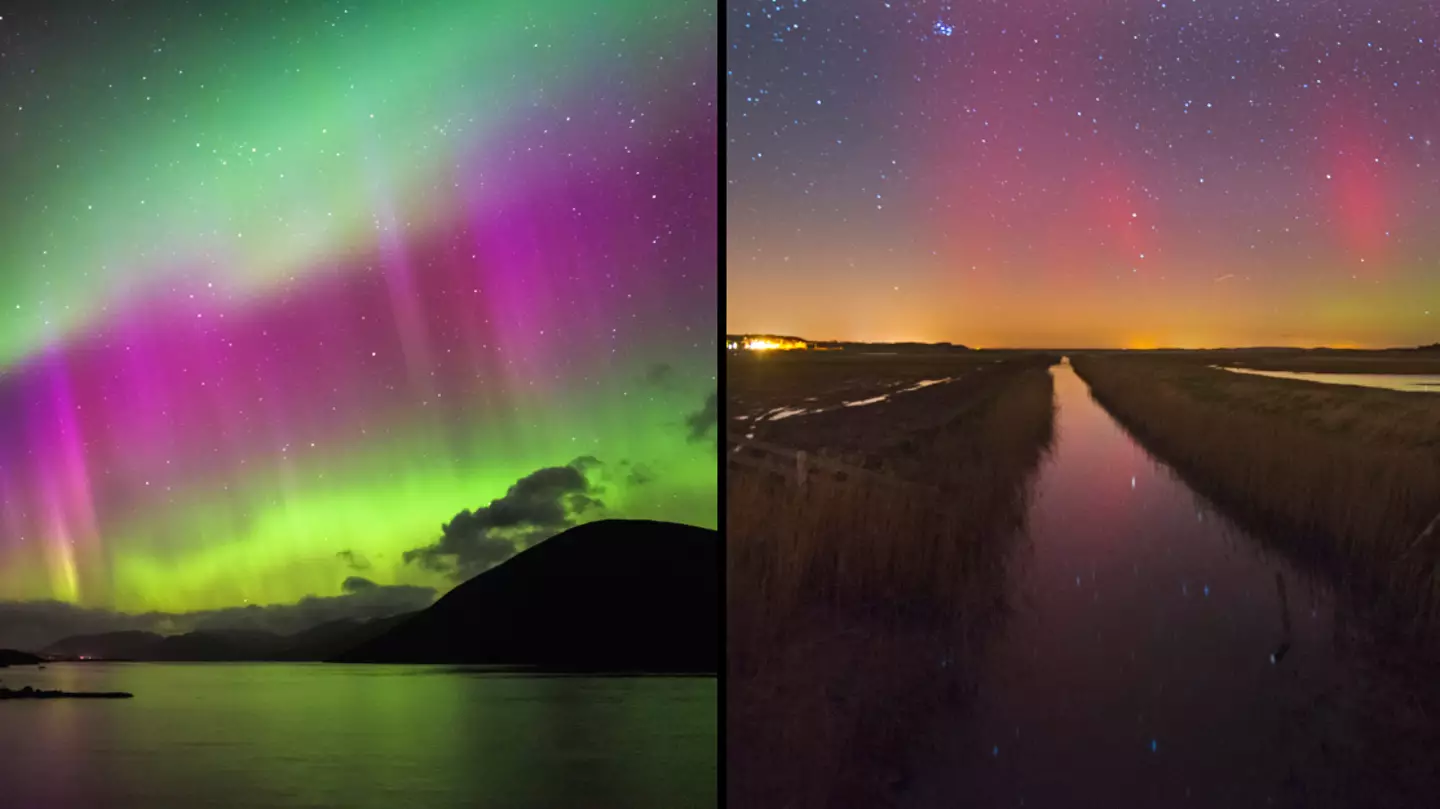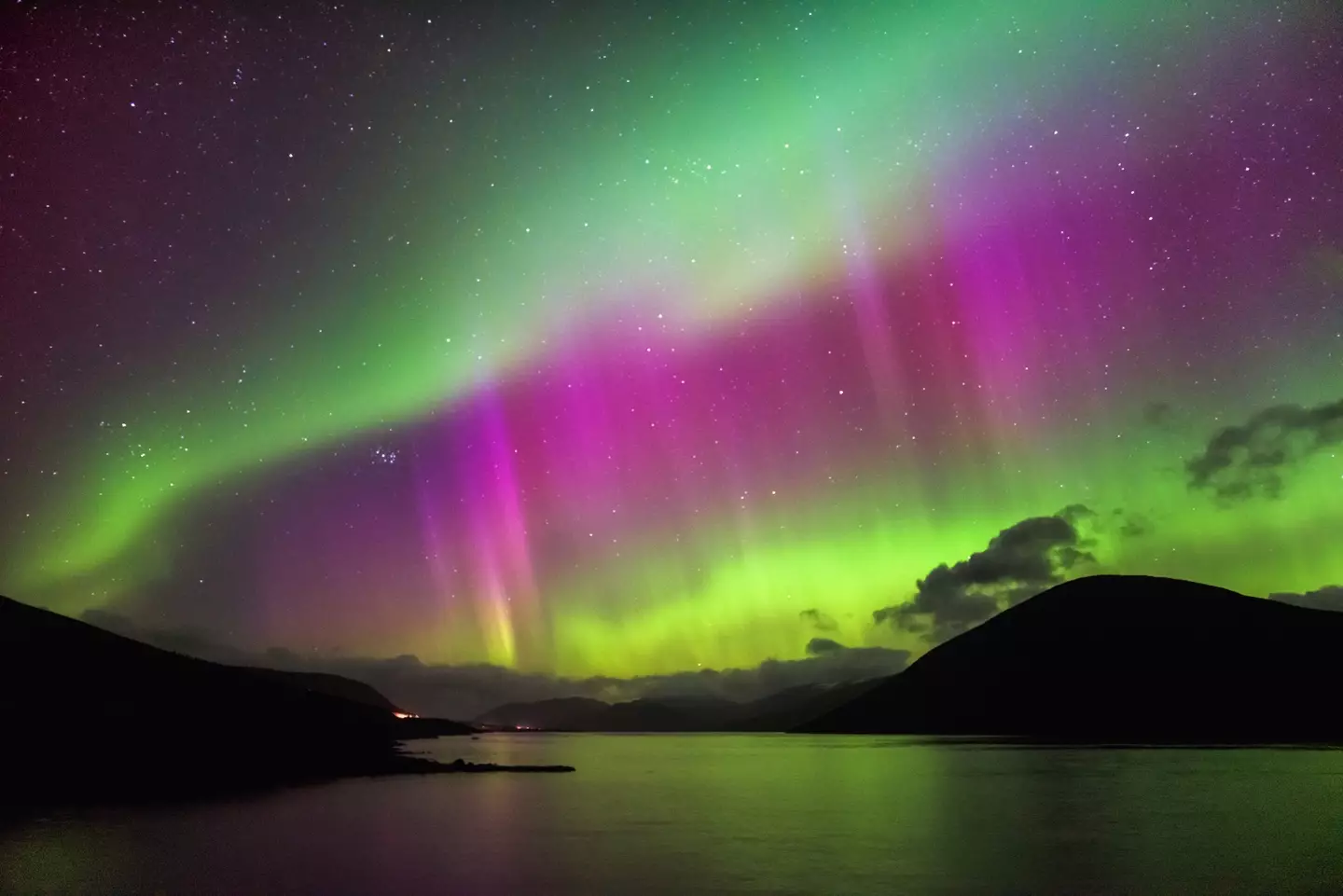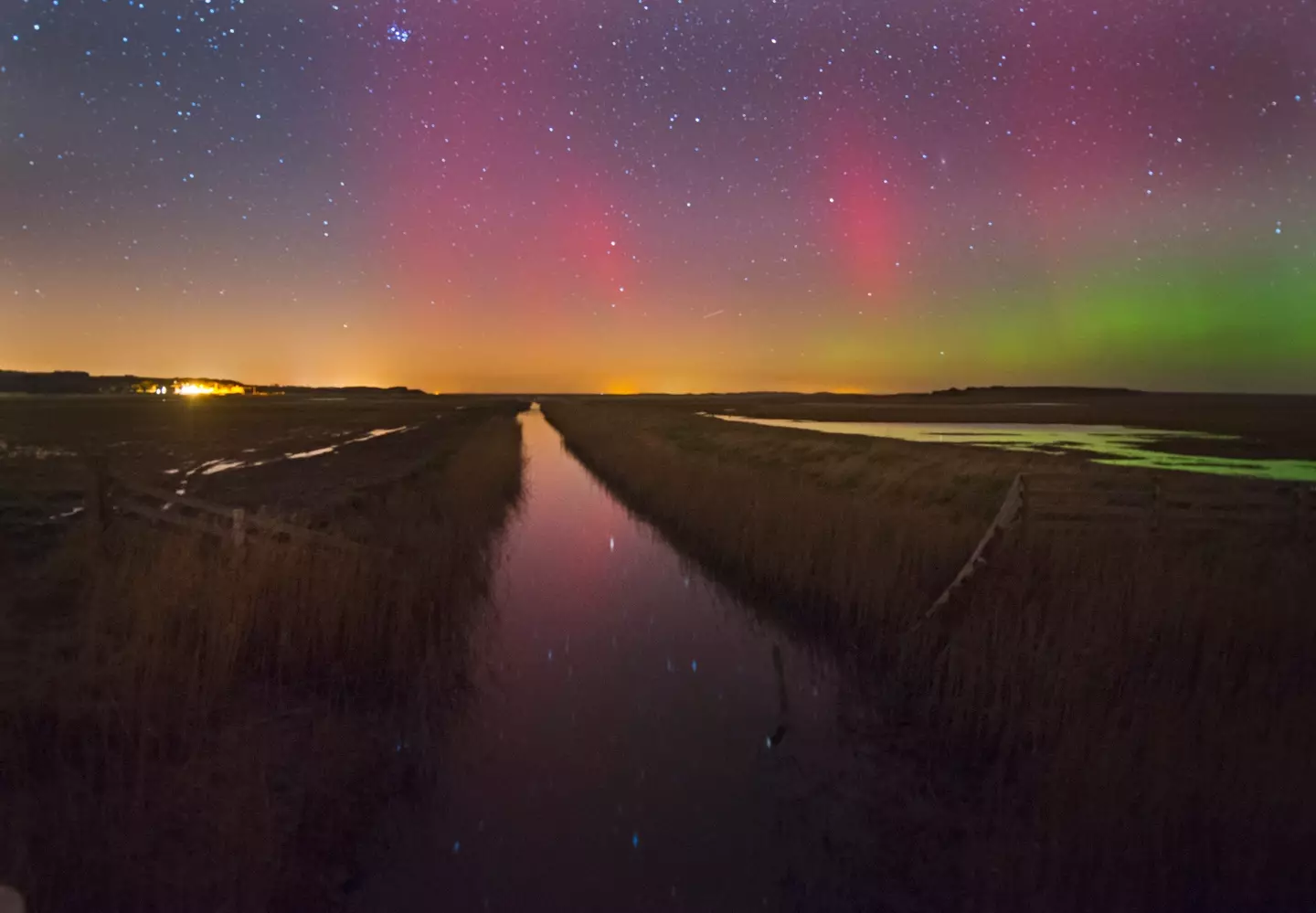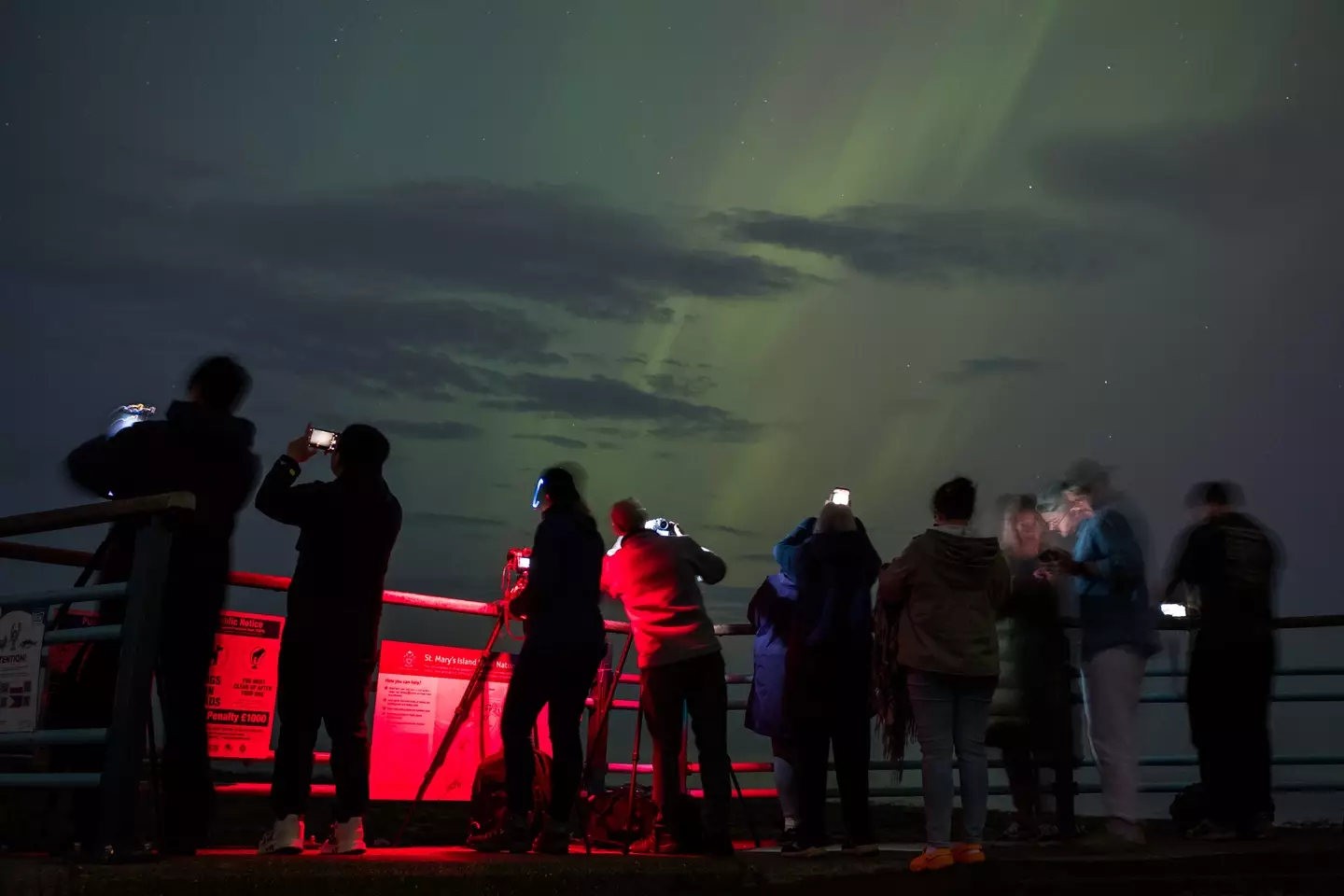
The Northern Lights could once again be visible in the United Kingdom - and it's sooner than you might be thinking.
It's all because of a huge new solar storm that's been recorded on the surface of the Sun.
The explosion into space is the biggest to happen in the current 11-year solar cycle. Happening on Tuesday (14 May), it was bigger than the one that gave us the stunning images of the aurora borealis right across the UK and mainland Europe.
Advert
To put the cosmic boom in to context, it happened on an area of the Sun's surface that is 15 times wider than Earth itself.
Right now, scientists say we're not expecting any major impact from the solar flare to come to Earth due to the explosion happening on a side of the Sun not facing our planet.
Geomagnetic impacts on the Earth aren't ruled out, though, according to the National Oceanic and Atmospheric Administration (NOAA) in the United States.
And it could wreak havoc with certain infrastructure such as GPS or even power loss, as the solar flare last weekend did over in the US.
In a short statement, NOAA said the Sun's volatility 'isn't done yet' following the new flare, categorised as an X8.7-class flare.

Jim Wild, Professor of Space Physics at Lancaster University, said repeated Northern Lights displays are unlikely due to the 'coronal mass ejections' from the Sun being flung in to space away from our planet.
But hope is not lost just yet.
Assistant Professor of Physics at the University of Warwick, Ravindra Desai, told Metro that while the volatile region of the Sun is now not facing Earth, it will soon change course.
Like Professor Wild, Dr Desai stressed that the consequences of the solar flare 'can still reach the Earth and cause radio blackouts and damage to orbiting satellites'.

And specifically on the Northern Lights, Dr Desai explained the time frame we'll have to wait to see if they'll appear again over the UK.
"It important to note that active region 3664 may persist for two weeks or longer and therefore will once again be oriented towards the Earth," he said.

"So in two weeks there is an elevated chance of further major geomagnetic storms and aurora over the UK."
Doing our rough maths, that means we could get the Northern Lights returning to the UK around 28 May. Although we're sure experts will do the specific maths on when they might be seen as we approach the window of opportunity.